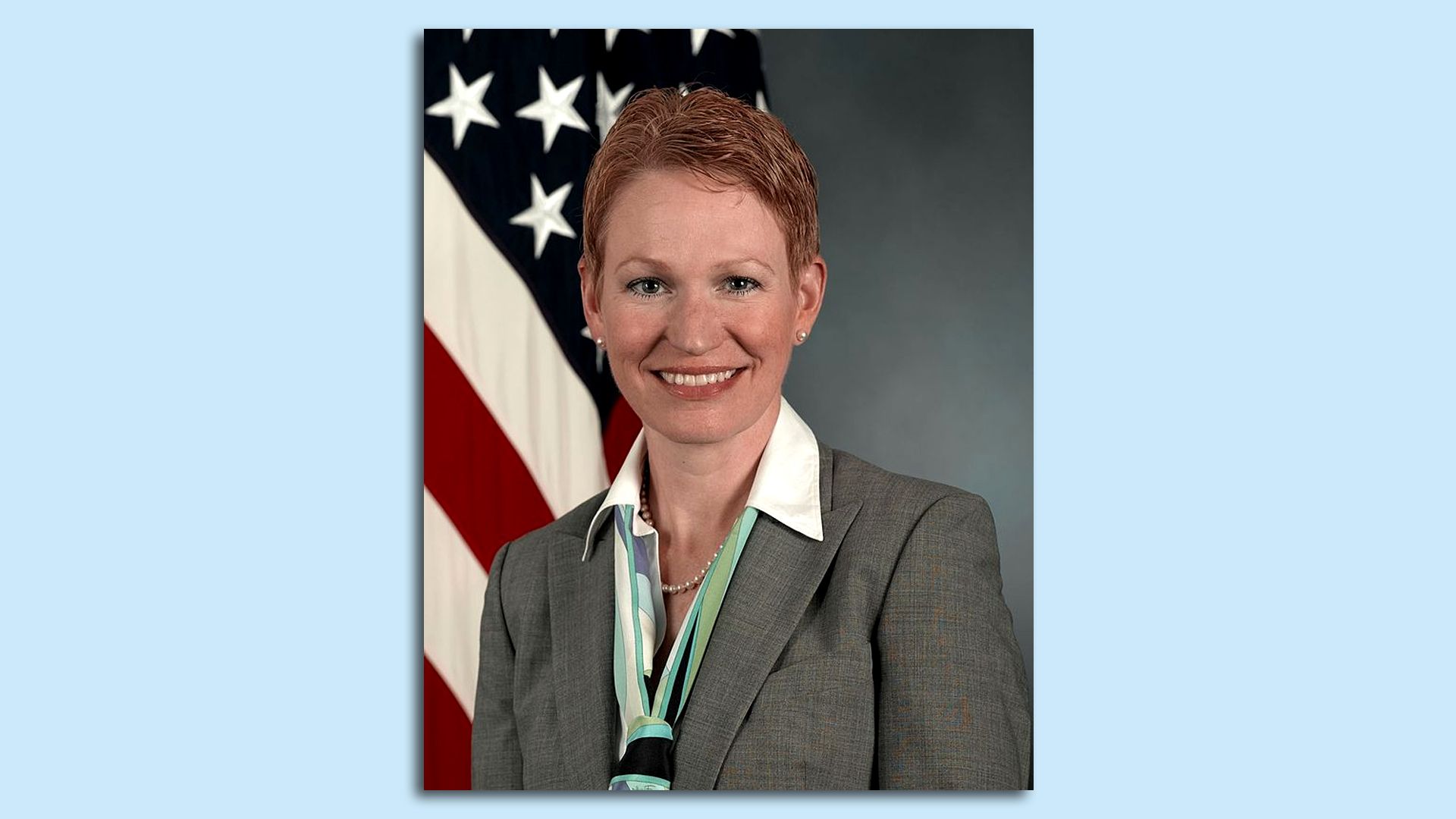Biden taps Russia expert for key Pentagon job
Add Axios as your preferred source to
see more of our stories on Google.

Celeste Wallander. Photo: Department of Defense
President Biden is nominating Celeste Wallander as his assistant secretary of Defense for international security affairs, a crucial position and one of his last remaining foreign policy posts, Axios has learned.
The big picture: By tapping Wallander, president and CEO of U.S.-Russia Foundation, Biden is rounding out his Pentagon team with an academic and Russia expert respected on both sides of the aisle.
- “Celeste brings great experience in and out of government from both at the Pentagon and the National Security Council, but also in the think-tank world and in academia,” said David Kramer, a former senior State Department official in the second Bush administration.
- "She has deep policy expertise in key regions, experience in getting things done in the Pentagon, and a track record as a gifted manager and leader," said Michèle Flournoy, an ex-Pentagon official under President Obama. "She will bring excellent judgment and proven experience in defense diplomacy to the job."
Why it matters: The assistant secretary of international security affairs typically travels with the secretary of Defense to Europe, the Middle East and Africa.
- The job holder ensures the Pentagon's broad — and specific — policy imperatives are conveyed to foreign governments.
- The assistant secretary also helps approve weapons sales and manage relationships with foreign militaries.
What's next: Wallander will require Senate confirmation and, if approved, will report to Colin Kahl, the under secretary of Defense for policy.
- While Kahl's nomination sparked controversy with his old social media activity, he was eventually confirmed 49-45.
- An ultra-marathoner, Wallander received her bachelor’s degree from Northwestern University and doctorate from Yale.
Go deeper: As Obama's Russia director at the NSC, Wallander proposed a range of options in the summer of 2016 to deter Russian President Vladimir Putin from further meddling in the U.S. presidential election, according to David Shimer, in his book, "Rigged."
- More recently, she asserted that Putin is responding to the challenge posed by opposition leader Alexei Navalny from a position of weakness, not strength.
What they're saying: “The leadership is feeling quite insecure at home and abroad,” Wallander told PBS Newshour in April.
